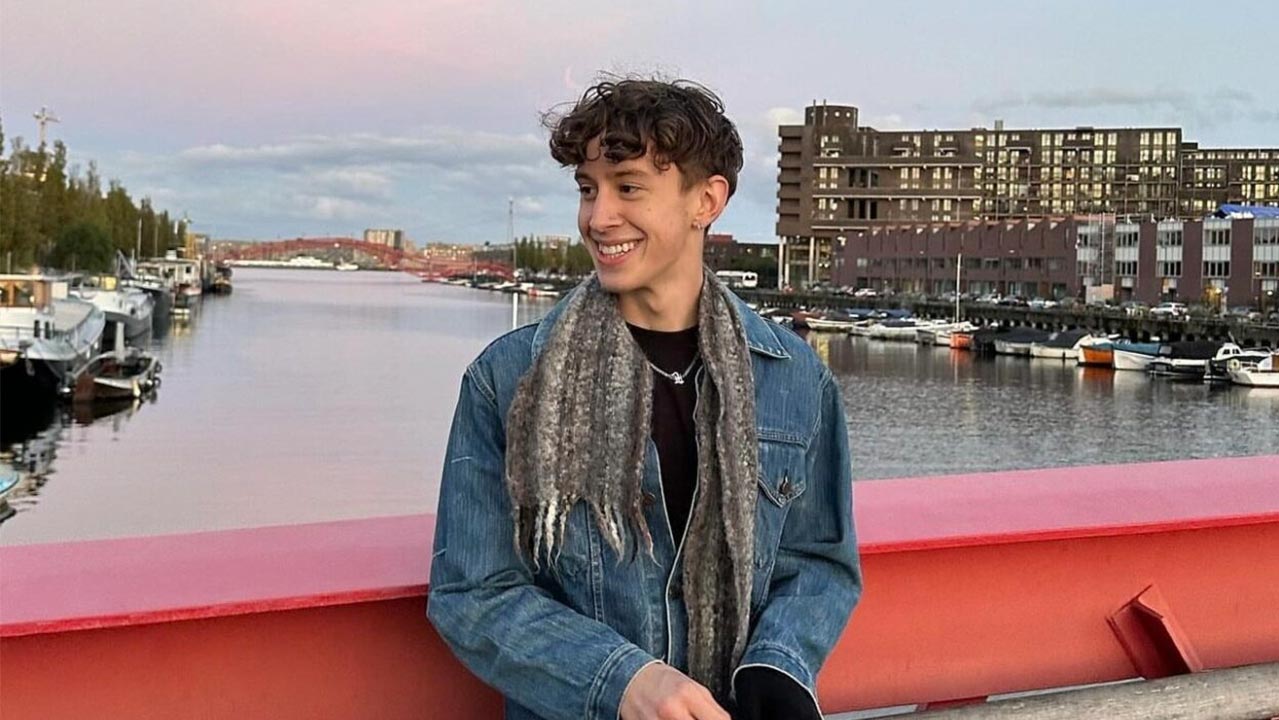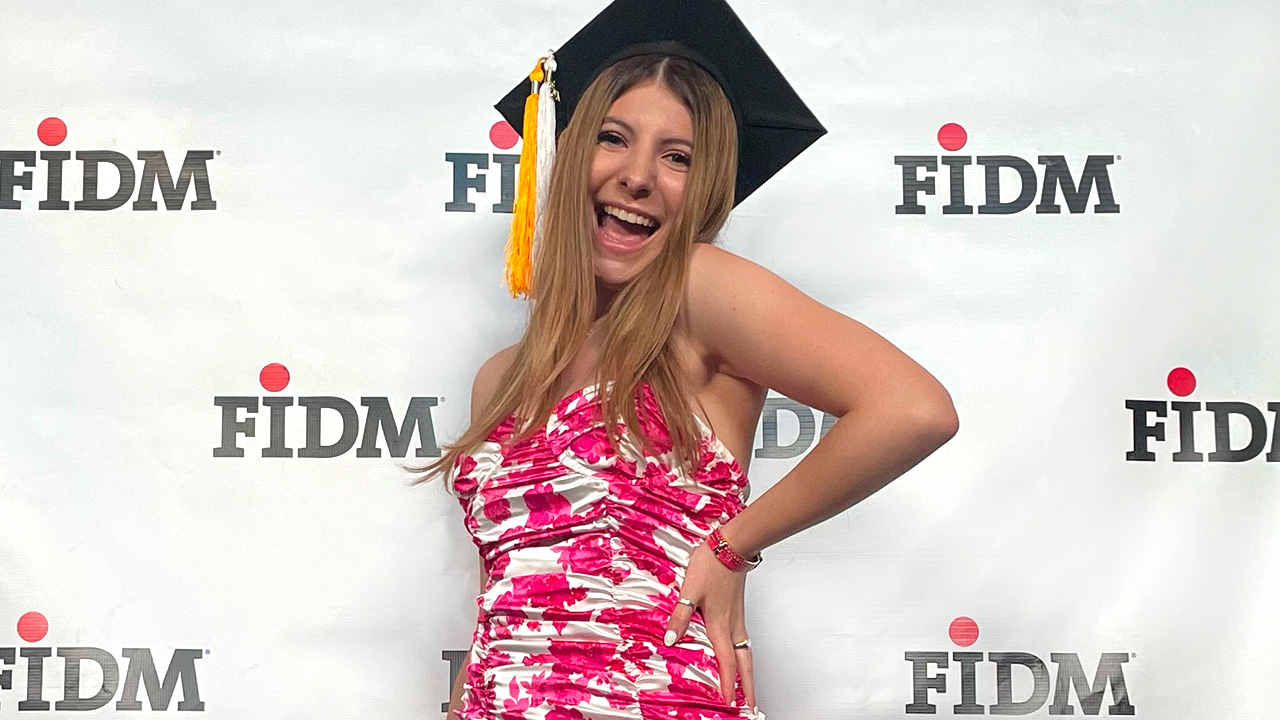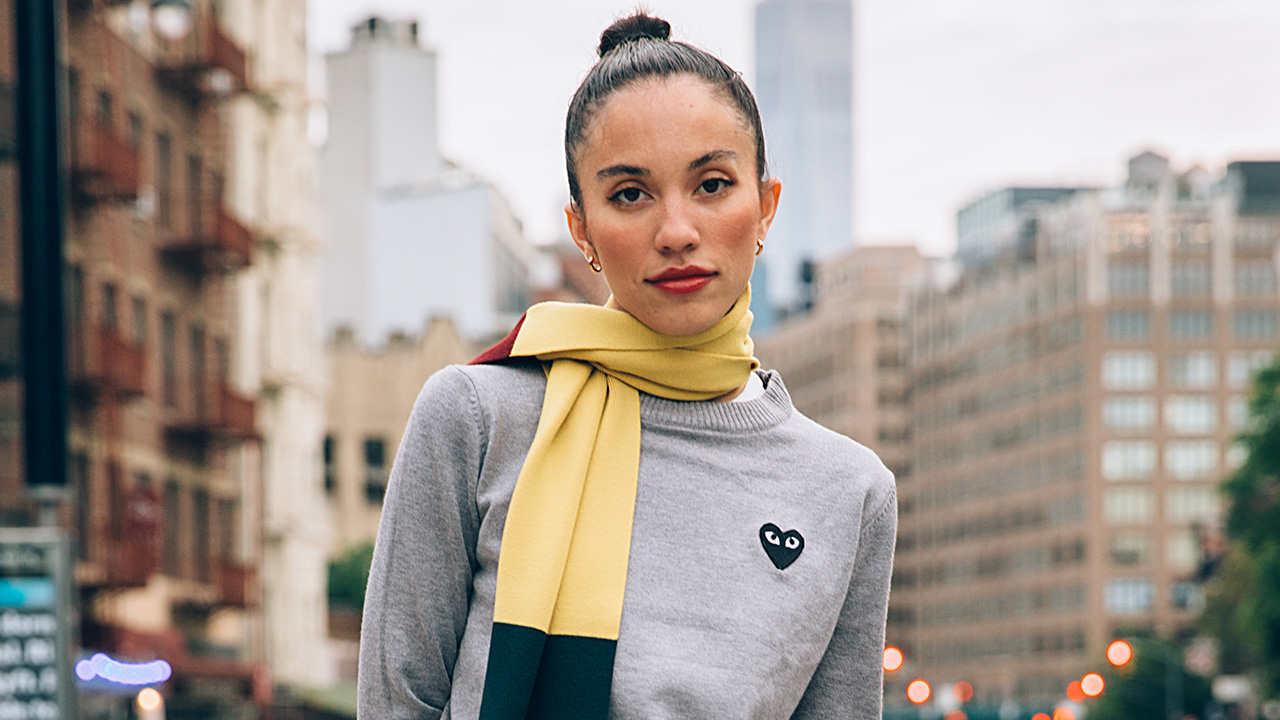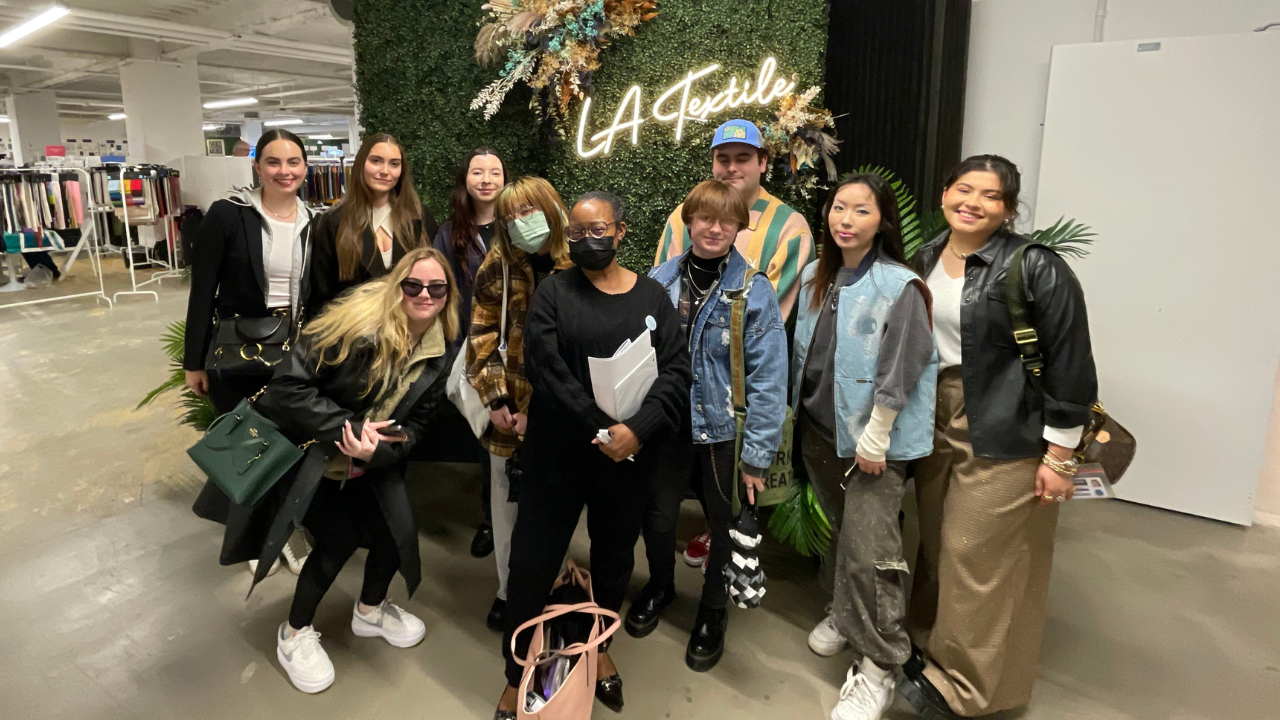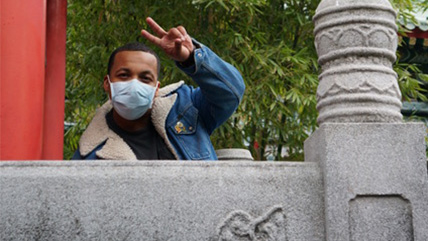
Student
Dom Gomez
I've been a student here at FIDM for the past three years and am currently in my third program—The Business of Denim. Prior to enrolling at FIDM in the fall quarter of 2014, I was in the United States Navy where I was an aviation mechanic for four years. While serving in the military, I lived in Japan for roughly three years and spent my last year living in San Diego. I am not from a military family but I grew up in several places around Southern California, just east of Los Angeles. I lived in Florida for a year where I attended high school outside of Orlando. And throughout all my years of high school, I spent my summers just outside of New York City, working at a well-established sports academy where I acted as support staff for the academy operations.
Previous degree(s): I started FIDM under the Apparel Industry Management (A.A.) major. Once I completed my A.A. I then completed an Advanced Study Program known as IMPD (International Manufacturing and Product Development).
How did you hear about FIDM? I heard about FIDM through a high school friend with whom I later connected while living in Japan. I was and still am very much in love with Japan and here is where my love for the fashion industry brewed.
What are your career goals and how is FIDM helping you get there? My ultimate career goals align directly with my educational background here at FIDM. I enjoy the process of development, design, and technical function through product engineering. Ultimately putting myself into a creative environment and using design and product as a tool to problem solve. Along with that come many key components of the process that I have gained while attending FIDM. These tools have given me a medium to approach the industry with a well-rounded perspective at almost every level.
What went into your decision to apply to The Business of Denim Program? Growing up in Southern California just outside of LA, I grew up always wearing a pair of jeans. I think that denim is much of an important staple around the world and it’s a universal language of fashion no matter what part of the world you may be in. This along with the fact that no other school within the U.S. offers a program anything like what we get here at FIDM made the decision simple. It felt like the right thing to do, with the historical significance that LA has within the denim industry. It’s a fabric that has so much history but yet so much technology is still being developed to improve it, with that the innovation and development around denim as a fabric, it really provoked me to dive into the program and now I'm here.
What are the advantages of studying denim, specific to Los Angeles? It's funny because LA has built such a strong name for ourselves within the denim industry. While traveling around the world people understand that quality denim products come out of right here in Los Angeles. We have some of the best wash technicians around the world right here in our backyard, mixing formulas and challenging the standard of what we can do with denim in the laundry process. We also have solid manufacturing access from those who understand denim construction. Denim is a fabric that is typically constructed in ways of non-traditional fashion with very specific machinery and we have access to this and their highly experienced operators just a couple blocks from campus.
What was the highlight of the Denim Study Tour? There were so many. I think as a group we all really enjoyed different parts of it, from being in the Japanese mills and getting a first-hand perspective on their processes of dying, weaving, and finishing the fabric so meticulously. Then actually being immersed in Kingpins where there is so much industry knowledge and experience at your fingertips. We were also able to meet with various well-established denim brands throughout Amsterdam. Just being able to converse with these people who were in major roles throughout their perspective companies—whether that be design, merchandising, and even CEOs—was very inspiring and educational all in the same conversation. I think for me, on top of all of that, my most enjoyable part was our ride through the countryside of Japan on our way to Kaihara, a Japanese mill. The drive was beautiful and the people at Kaihara were exceptional.
Tell us about the Kingpins Show in Amsterdam that you attended on the Study Tour: Kingpins is a show where those in the denim industry at all levels attend. Here is where we are able to see all the most recent and developed innovations around denim. These innovations ranged from technique to fabric development, wash development, laser development, and different technologies that play roles in various stages of the denim from a yarn or fiber role to a final product. Here we were also able to attend "Transformers" which is an extension of KINGPINS. Transformers was very informative, we were able to sit in on a panel of selected women who have key roles in the denim industry. This raised great Q&A and allowed us to understand how these women use their approach and positions to better the denim industry in their respective areas.
The trends I noticed at Kingpins mostly revolved around fabric development. The denim industry is working hard to develop denim that is better at every level and highly sustainable. There were a lot of creative approaches to fabric development as far as what denim can be perceived as and functionally what it can be used for. Maybe this won't be a trend much in the future as more and more innovations continue to evolve consistently changing the industry. Other trends that I noticed was that there really was no ONE trend. It was exciting to see denim styled, used, and worked in ways that challenge our idea of what denim can be and the position it can hold in the fashion industry.
What advice do you have for someone thinking about going into The Business of Denim Program at FIDM? I think my only advice would be to ask yourself, "Do I love denim?" Whatever that question means to you from there, I think the decision is easy. One thing that I've learned about this community from this community, is that although we may all have different agendas, our common goal stems from the same place—a love for denim.
Categories: The Business of Denim Student
